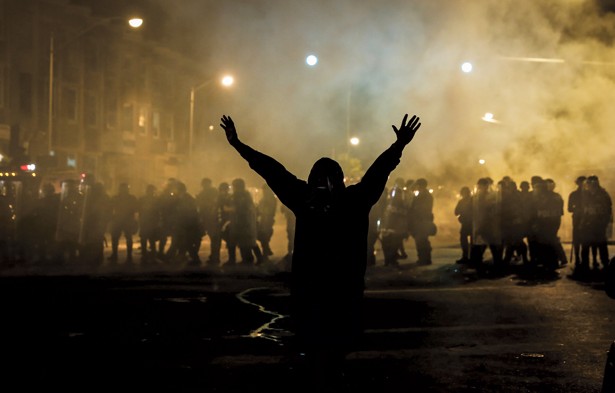There Is No Post-Racial America
The United States needs more than a good president to erase centuries of violence.

TEXT SIZE
The term post-racial is almost never used in earnest. Instead it’s usually employed by talk-show hosts and news anchors looking to measure progress in the Obama era. Earnest or not, the questions we ask matter. As many of our sharper activists and writers have pointed out, America’s struggle is to become not post-racial, but post-racist. Put differently, we should seek not a world where the black race and the white race live in harmony, but a world in which the terms black and white have no real political meaning. The Obama-era qualifier is also inherently flawed, because it assumes that the long struggle that commenced when the first enslaved African arrived on American soil centuries ago could somehow be resolved in an instant, by the mere presence of a man who is not a king. These two flaws, taken together, expose a kind of fear, not of having a “conversation about race” but of asking the right questions about racism.
Taking recent events into account, such questions might include this one: How can it be that, with some regularity, the news describes the shooting of an unarmed African American by the very police officers sworn to protect Americans? Diversionary claims of black-on-black crime or gang violence will not suffice. People tend to kill the people they live near—and unless they are police officers, none of these people kill with the weight of the state behind them. The answer is in our past, in our résumé, in our work experience. From the days of slave patrols, through the era of lynching and work farms, into this time of mass incarceration, criminal justice has been the primary tool for managing the divide between black and white. We’ve done this for so long that we’re now almost on autopilot. Tamir Rice, Walter Scott, and Freddie Gray keep happening because they have to keep happening. Our long history of viewing African Americans through the lens of criminal justice is a kind of programming that demands Freddie Gray keep happening. The programming does not require a critical mass of evil racists in order to be carried out. And we will need a lot more than a good president—than a great president—to terminate it.
No comments:
Post a Comment